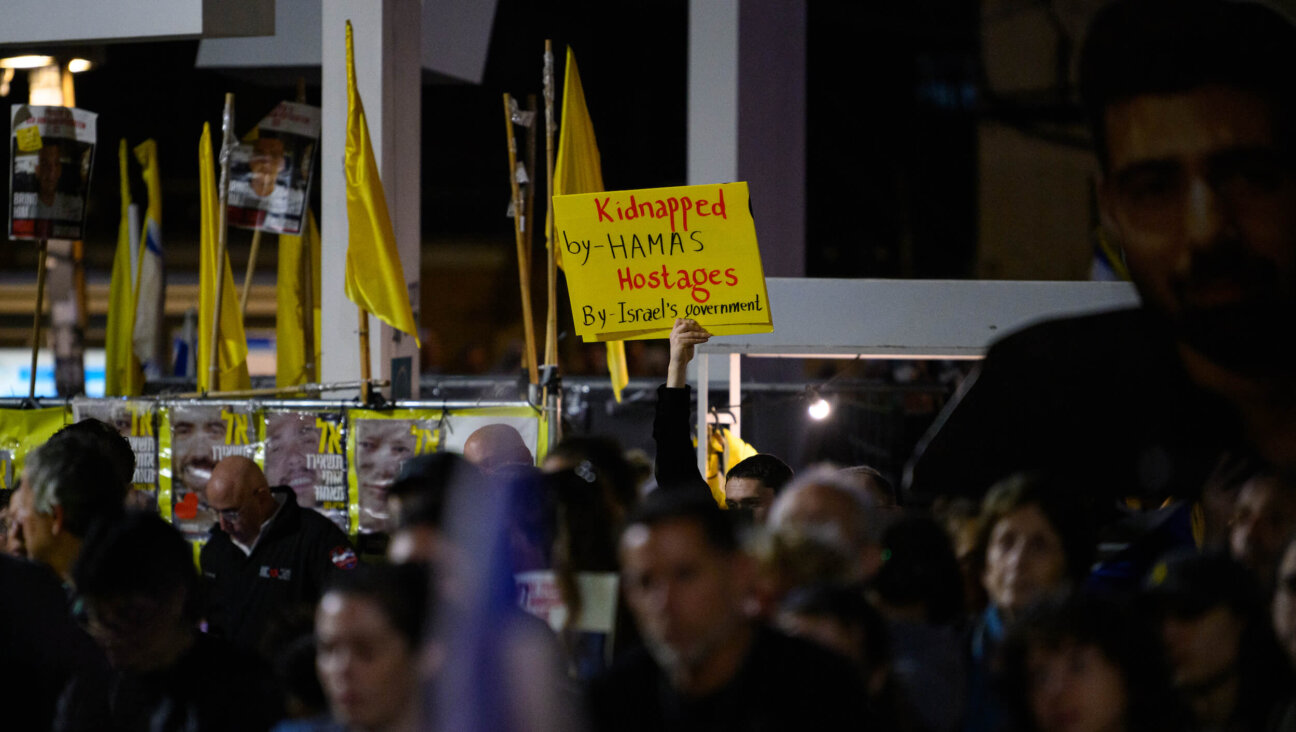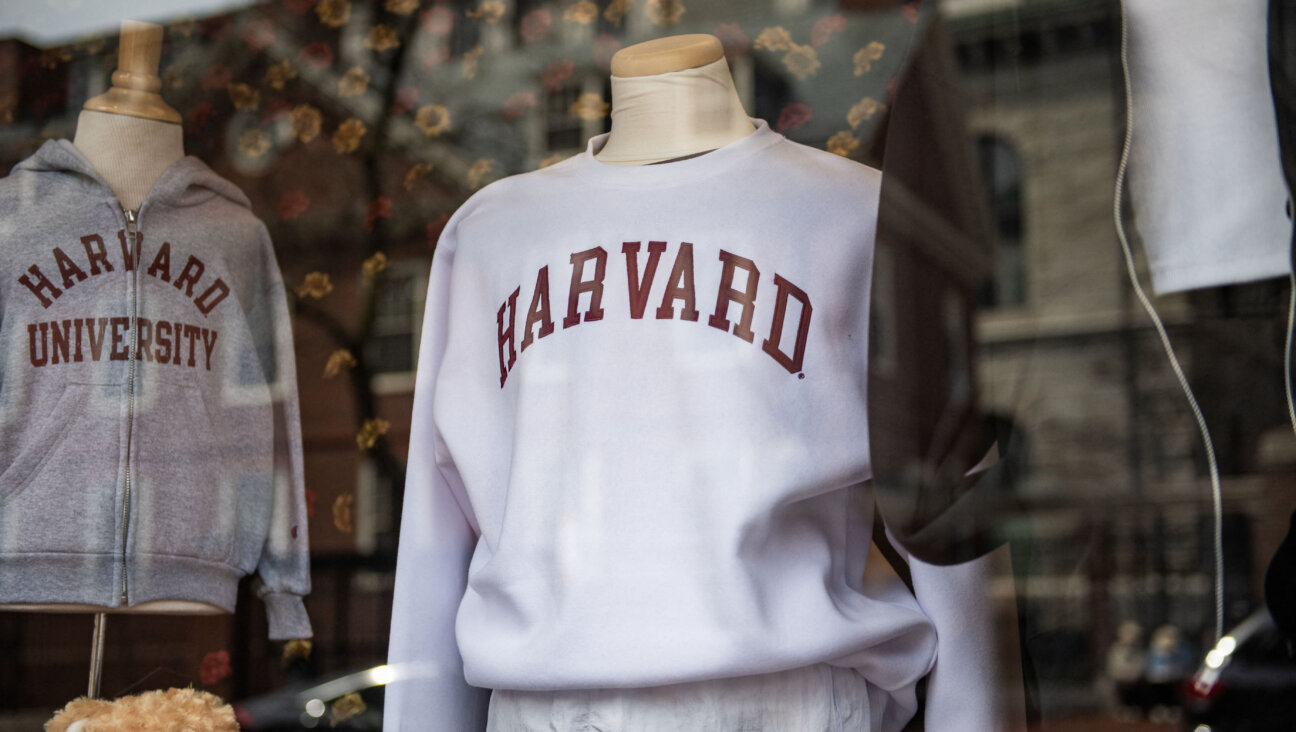C’est l’Economie, Stupide
When Nicolas Sarkozy, the conservative frontrunner in the French presidential elections, goes into the runoff with his socialist rival Ségolène Royal on May 6, he can count on strong support from the largest Jewish community in Western Europe. Many of France’s 600,000 Jews like Sarkozy’s outspoken (and somewhat un-French) support for Israel, but some are turned off by his willingness to echo the anti-immigration and sometimes racist rhetoric of veteran far-righter Jean-Marie Le Pen.
Both views of Sarkozy, however, are overrated, and should not decide the Jewish vote. In all likelihood, as president he would not fundamentally change France’s Middle East policy and its traditional affinity for Arab states and the Palestinian cause. Neither would he go beyond the tough approach of current President Jacques Chirac toward the unruly migrant youth in the banlieues, the run-down suburbs around Paris and other major cities. After all, until recently Sarkozy was Chirac’s interior minister.
When riots broke out in the banlieues two years ago, he set a defiant tone by threatening to clean up the ghettos with a “Kärcher,” a well-known German brand of industrial-strength pressure-washers used to remove dirt and feces from sidewalks. Some Muslim leaders have still not forgiven Sarkozy for these words, and they have threatened an explosion of anger in the banlieues if Sarkozy is elected.
There have been rumors of a secret alliance between Sarkozy and Le Pen, who once referred to the Holocaust as a detail of history and has made other anti-Jewish statements. Most Le Pen supporters, however, would never even consider voting for a Socialist like Royal, so it is hard to see how such an alliance would help Sarkozy.
During the campaign, Sarkozy wooed Le Pen voters by calling for the creation of a “Ministry of Immigration and National Identity” and by telling disgruntled immigrants to leave France. Le Pen struck back by describing Sarkozy, who has a Hungarian father and a mother of Greek Jewish descent, as a “candidate who comes from an immigration background.” “I,” Le Pen asserted, “am a candidate from this land.”
But it is not just having a Jewish grandmother that makes Sarkozy attractive to French Jews — among them some of the country’s leading intellectuals, including once-steadfast leftists Andre Glucksmann and Alain Finkelkraut. They like his pro-American attitudes, his sympathy for the American-led war on terrorism and his pledge to fight homegrown Muslim antisemitism. And Bernard-Henri Levy, perhaps France’s most celebrated public intellectual, contemplated backing Sarkozy for a while. Only in the last stage of the campaign did he finally endorse Royal, warning that Sarkozy would polarize French society.
Consistent violence against Jewish properties and against individual Jews, which reached its peak last year with the gruesome murder of 22-year-old Ilan Halimi, pushed many in the Jewish community to the right. Some even supported Le Pen’s National Front because of its anti-Arab stance.
Support for Sarkozy is most pronounced among Sephardic Jews who immigrated from North Africa and today represent the majority of French Jewry. Ashkenazim traditionally vote for the left, but even among them Sarkozy has gained a distinct following.
Royal, meanwhile, has zigzagged between strict law-and-order positions and traditional leftist sympathy for the disenfranchised, who in today’s France are mostly the children of North African immigrants. Even though she made some verbal gaffes during a trip to the Middle East, Royal is certainly not anti-Israel, just closer to the traditional French political mold.
But it is with regard to the economy that Sarkozy most differentiates himself from Royal. France has one of the highest unemployment rates in Western Europe, and almost a quarter of its young people are without a job. In the banlieues, the rate is much higher.
The country has lost its competitive edge, economic growth rates have fallen behind those of Germany, and high non-wage labor costs and extremely rigid work hours continue to stifle the creation of new jobs. Most economists agree that France needs a dose of deregulation to get its economy back on track.
Even though Sarkozy avoided any radical measures when he was finance minister for six months in 2004, he seems much more likely to reform the economy than Royal, who has pledged a huge increase in social spending without any proposals to finance her generous campaign promises. Still, there are more than a few who believe that only the French model of state intervention and high social spending can hold society together and preserve what is still one of the world’s highest standards of living.
A sustained economic upswing would be the best way to reduce ethnic tensions and help to integrate young Muslims into French society, while continued stagnation might turn the banlieues into battle zones and cause societal tensions that would inevitably affect the country’s Jews. Whether Sarkozy can really fix the economy remains to be seen, but it is clearly his strongest card for the presidential runoff.
Eric Frey is managing editor of the Vienna daily Der Standard.
The Forward is free to read, but it isn’t free to produce

I hope you appreciated this article. Before you go, I’d like to ask you to please support the Forward.
Now more than ever, American Jews need independent news they can trust, with reporting driven by truth, not ideology. We serve you, not any ideological agenda.
At a time when other newsrooms are closing or cutting back, the Forward has removed its paywall and invested additional resources to report on the ground from Israel and around the U.S. on the impact of the war, rising antisemitism and polarized discourse.
This is a great time to support independent Jewish journalism you rely on. Make a Passover gift today!
— Rachel Fishman Feddersen, Publisher and CEO
Most Popular
- 1

News Student protesters being deported are not ‘martyrs and heroes,’ says former antisemitism envoy
- 2

News Who is Alan Garber, the Jewish Harvard president who stood up to Trump over antisemitism?
- 3

Fast Forward Suspected arsonist intended to beat Gov. Josh Shapiro with a sledgehammer, investigators say
- 4

Politics Meet America’s potential first Jewish second family: Josh Shapiro, Lori, and their 4 kids
In Case You Missed It
-
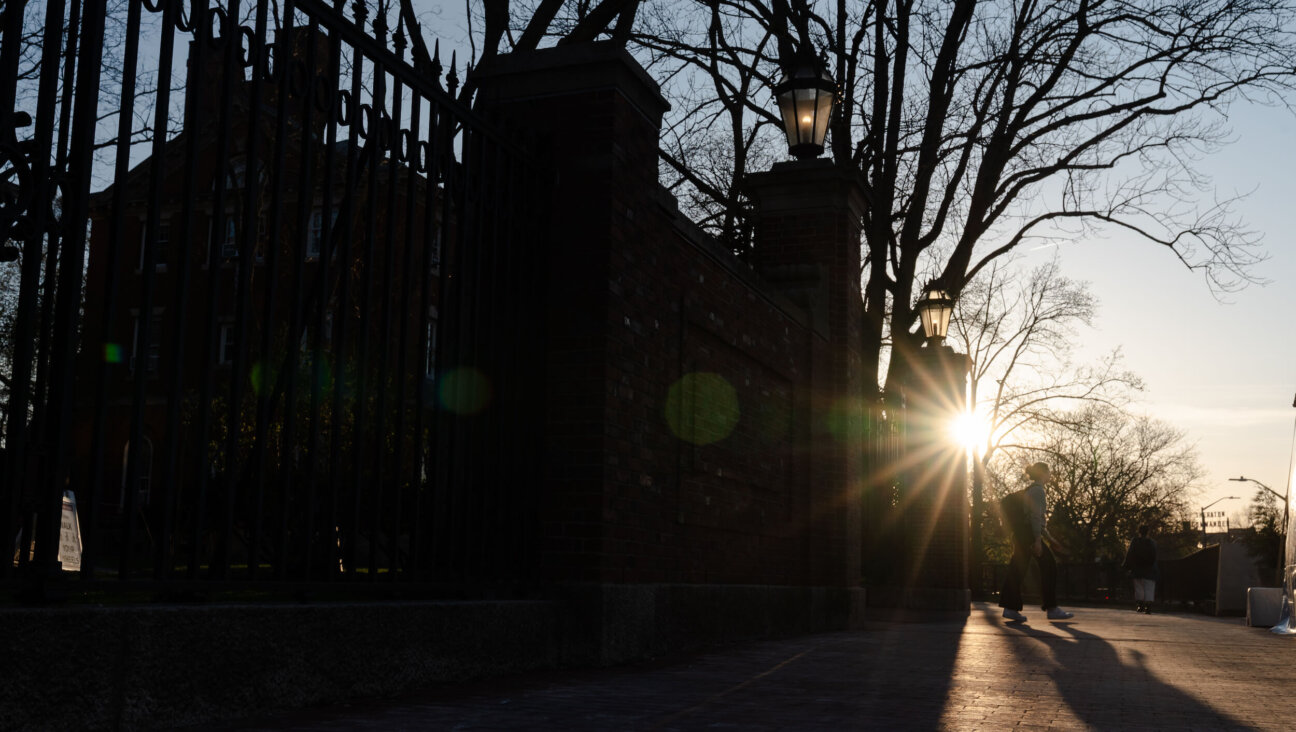
Opinion Why can Harvard stand up to Trump? Because it didn’t give in to pro-Palestinian student protests
-
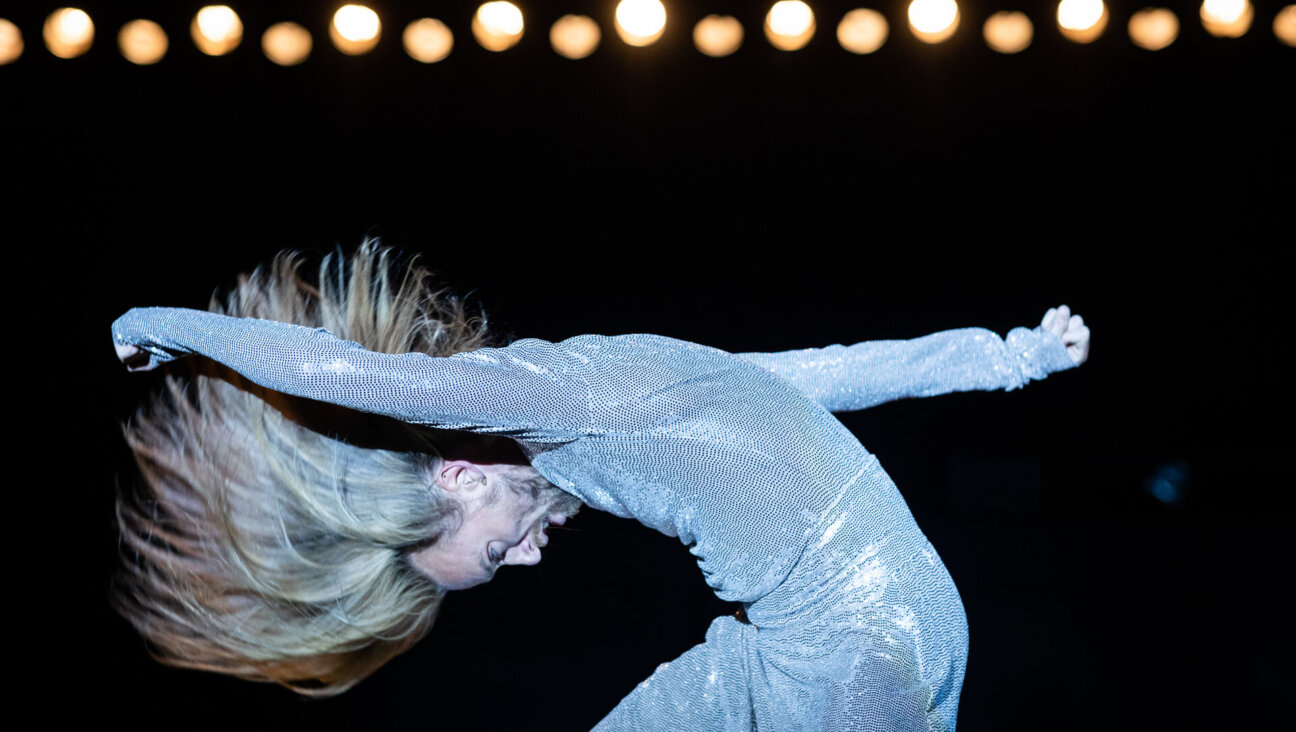
Culture How an Israeli dance company shaped a Catholic school boy’s life
-
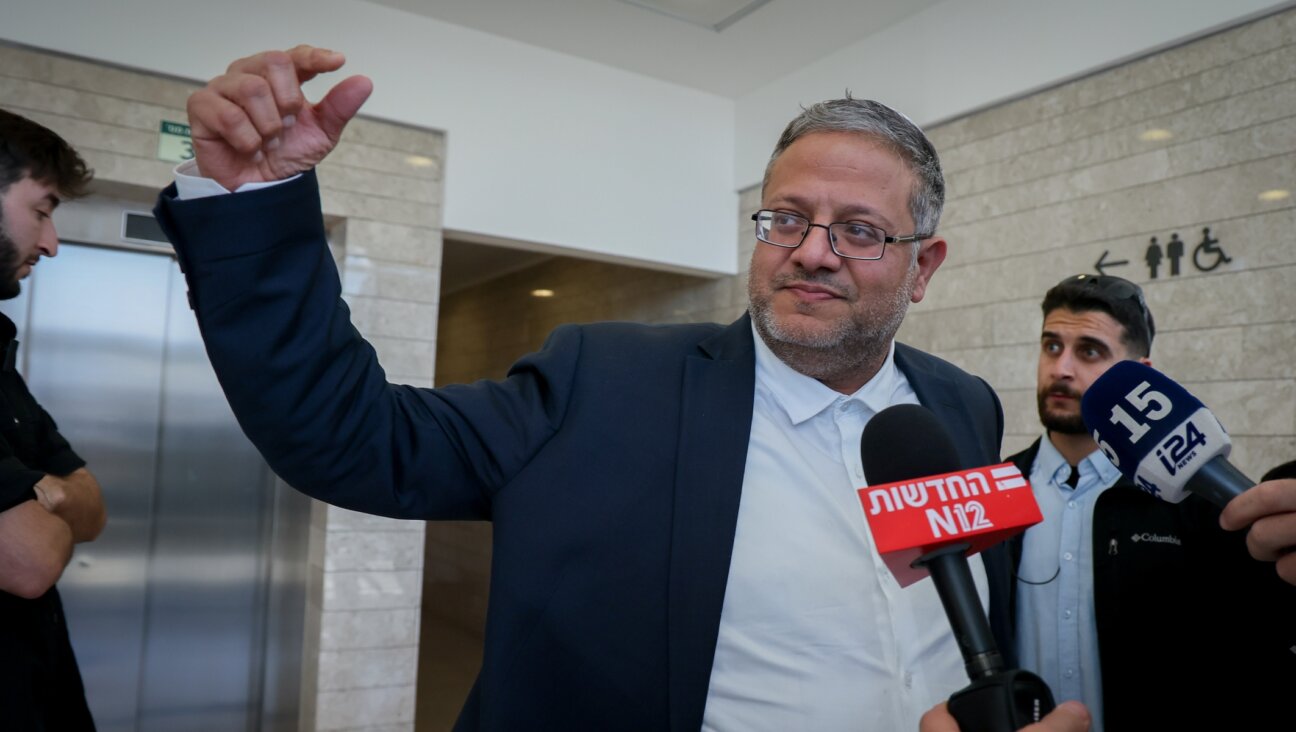
Fast Forward Brooklyn event with Itamar Ben-Gvir cancelled days before Israeli far-right minister’s US trip
-
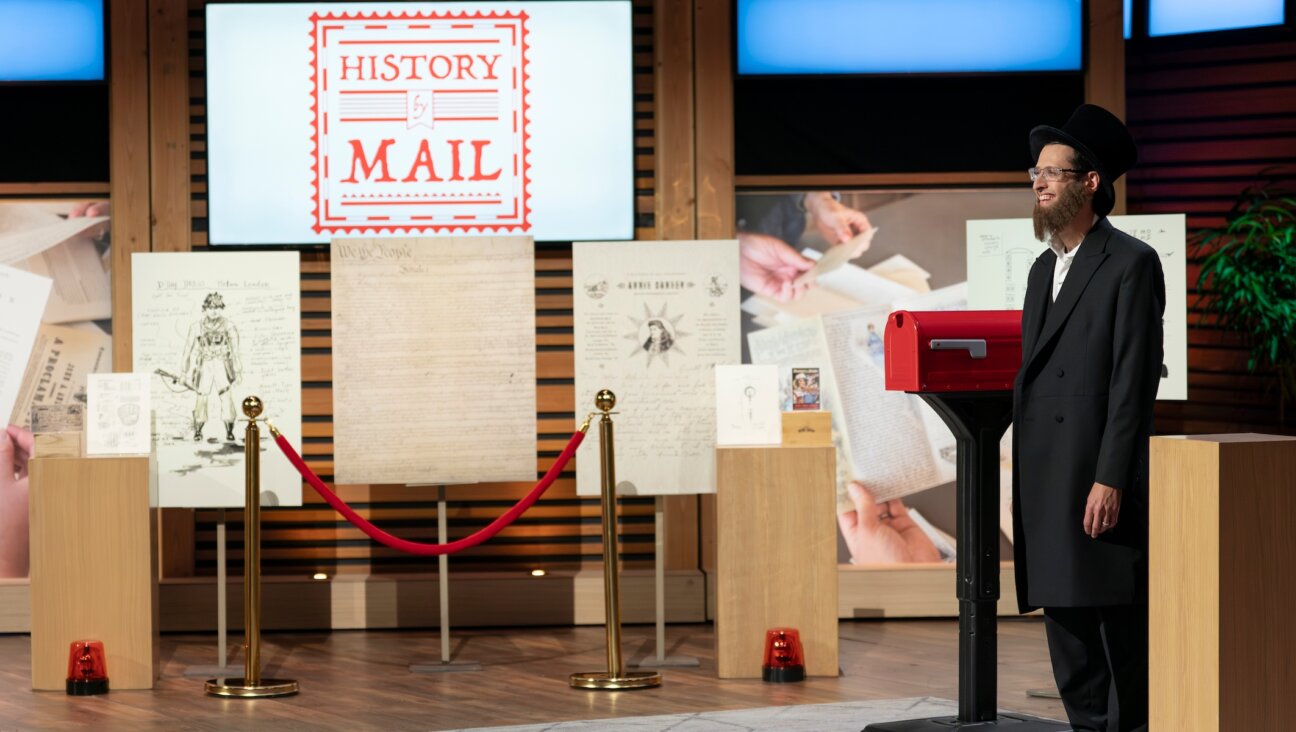
Culture How Abraham Lincoln in a kippah wound up making a $250,000 deal on ‘Shark Tank’
-
Shop the Forward Store
100% of profits support our journalism
Republish This Story
Please read before republishing
We’re happy to make this story available to republish for free, unless it originated with JTA, Haaretz or another publication (as indicated on the article) and as long as you follow our guidelines.
You must comply with the following:
- Credit the Forward
- Retain our pixel
- Preserve our canonical link in Google search
- Add a noindex tag in Google search
See our full guidelines for more information, and this guide for detail about canonical URLs.
To republish, copy the HTML by clicking on the yellow button to the right; it includes our tracking pixel, all paragraph styles and hyperlinks, the author byline and credit to the Forward. It does not include images; to avoid copyright violations, you must add them manually, following our guidelines. Please email us at [email protected], subject line “republish,” with any questions or to let us know what stories you’re picking up.






